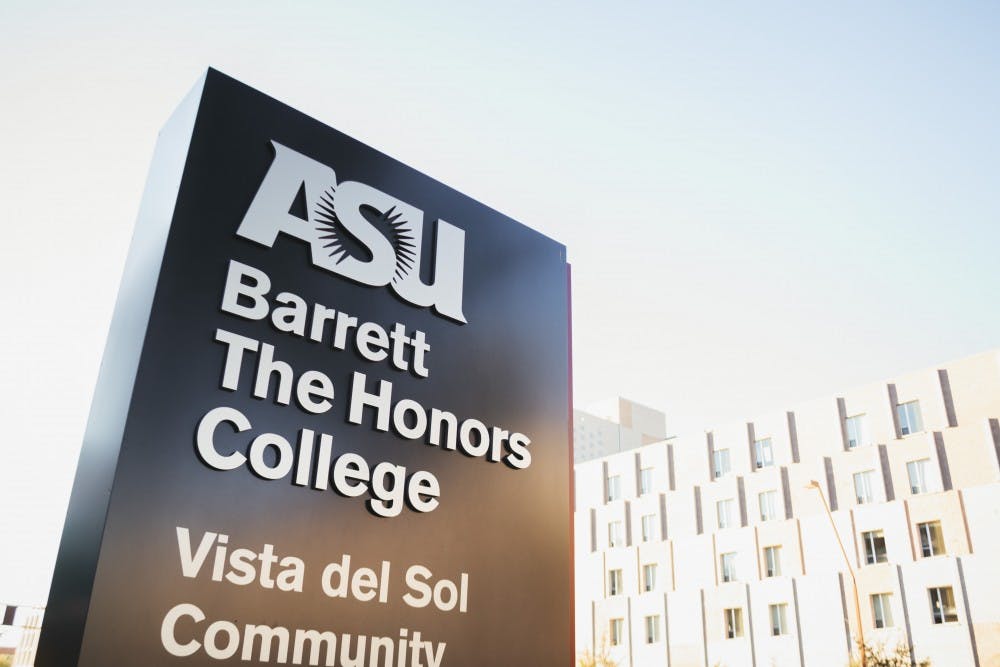Faculty and staff at Barrett, The Honors College taking part in the National Scholar Strike are holding a teach-in through Wednesday to create spaces for the community to collaborate and learn about racial justice using skills developed through introductory honors courses.
Discussions on Zoom Tuesday as part of the teach-in lasted from 8 a.m. to 5:30 p.m. Instead of teaching their regularly scheduled classes, faculty and staff focused some of their time on lecturing about womanism, guns and race, witch trials and discussing readings and videos posted online.
The strike will continue through Wednesday with a virtual poetry read-in and another day of the teach-in featuring faculty from other parts of the University.
While there is no explicit list of demands, a Barrett spokesperson said the college was committed to supporting students and faculty and was continuously working to complete projects to "enhance" the school for everyone.
Jennifer Brian, a Barrett faculty fellow and affiliate faculty in the School for the Future of Innovation in Society researching and teaching bioethics, said the teach-in as a form of protest was not traditional.
"Some people perceive this could be about raising awareness; everybody is acutely aware of what’s happening," Brian said. "Part of our project is to give us a chance to process it, to think through the root causes and to think ahead to expand our imaginations with how we might move through these divisions."
Although the Scholar Strike is a movement organized outside of ASU, the teach-in is unique to the University and a "collaborative effort of 11 academic units, centers and institutes committed to equity and social justice."
Olga Davis, associate dean of Barrett for the Downtown Phoenix campus, said in a Zoom meeting that national and global discourse has fallen short of fully addressing the history of protests, anti-racism and anti-Blackness.
"To see young people getting in and saying, 'Let's peel off the scab that's been on North America for so long,' thinking about the story and whose story is it and who gets a chance to tell the story ... are issues that we should look at," Davis said.
Katelyn Kubly, treasurer for the Black African Coalition and a junior majoring in interdisciplinary studies, said she appreciated Barrett faculty for holding the strike after being initially skeptical of attending Barrett due to stories of BIPOC students who felt "uncomfortable" attending the college.
"It felt comforting knowing that I'm transferring into Barrett, even though I was still kind of worried about how I was going to fit in because of the preconceived notions I had," Kubly said. "It was nice to see that they were taking a stand in solidarity with their minority students."
However, Kubly and the BAC want to know what the University plans to do moving forward.
"Doing one thing is great, but what else are you going to continue to do, because this one strike is not going to fix everything," Kubly said. She hopes students use the two days off from scheduled classes as an opportunity to educate themselves on issues affecting their fellow BIPOC classmates.
ASU President Michael Crow announced last week it will implement 25 courses of action to improve diversity and education on campus. The actions ranged from increasing efforts to hire faculty of color, plans to build a multicultural facility on campus and creating an advisory council on African American affairs, among others.
Sarah Tracy, a professor at the Hugh Downs School of Human Communication, said that the past six months of protests have made one thing clear to white faculty members: "Drop what you are doing and start reading, start listening and start learning" about the racial injustices in the U.S.
"The scholar strike is one more call of action on how I need to, and want to, and am inspired to, pay attention to the issues going on in our world right now," Tracy said.
Barrett leadership asked themselves to identify the best way to "support our students who may be traumatized by recent and ongoing racial violence," Mary Ingram-Waters, a faculty chair and honors faculty fellow, wrote in an email.
"We wanted to acknowledge that our students' pain and fear was real and that we supported them," Ingram-Waters said.
The goal of the discussions is to create "events that both allowed and made space for Barrett's students to make their voices heard on these issues," said Alexander Young, an honors faculty fellow.
Additionally, Young said the discussions "allow us as a faculty to speak on these issues of racial justice and anti-Black racism from our own areas of expertise with our students, and engage with them in dialogue."
A University spokesperson said the school was aware of the planned teach-in, and believed it would "be a valuable way to help those who would like to learn more about racial violence, policing and community organizing."
However, the University still expects "that faculty members will continue to fulfill their teaching commitments."
Kubly said the student experience at the University and its systems need to be changed and hope the conversations taking place are "a wake-up call."
Many discussions throughout Tuesday's meetings revolved around the historical significance of BIPOC oppression in America. Davis said scholars have documented "the history of the world — to the stars," yet fail in teaching students a full history of slavery.
"Perhaps what makes this Teach-In uniquely Barrett is that it offers our students a space to apply these skills learned in their Barrett classes," Ingram-Waters wrote.
Brian added the teach-in was a way to better understand how other faculty are taking different and unique perspectives to address racial injustice, in addition to breaking the liberal arts education model that Brian said focuses on different perspectives and experiences but not those of students.
"I really hope that this teaching moment reminds everyone that they have real knowledge from their everyday life that they should share with one another, because it enhances all of our understanding of how the world works," Brian said.
Reach the reporters at pjhanse1@asu.edu, wmyskow@asu.edu and kpirehpo@asu.edu and follow @piperjhansen, @wmyskow and @kevinpirehpour on Twitter.
Like The State Press on Facebook and follow @statepress on Twitter.

Wyatt Myskow is the project manager at The State Press, where he oversees enterprise stories for the publication. He also works at The Arizona Republic, where he covers the cities of Peoria and Surprise.

Piper Hansen is the digital editor-in-chief at The State Press, overseeing all digital content. Joining SP in Spring 2020, she has covered student government, housing and COVID-19. She has previously written about state politics for The Arizona Republic and the Arizona Capitol Times and covers social justice for Cronkite News.




